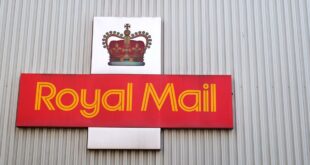The first quarter of 2020 is “make or break” for Hargreaves Lansdown as investors examine whether weak inflows are the result of temporary factors or increased competition, Berenberg said as the broker cut its price target on the company’s shares.
Keeping their ‘hold’ rating on the stock the Berenberg analysts said it was hard to separate cyclical and structural forces when judging reduced net inflows in the first half of Hargreaves Lansdown’s year. They cut their price target for Hargreaves Lansdown shares to 1,820p from 1,928p.
Investment Association figures show Hargreaves Lansdown accounted for 20% of UK platform flows in the second half of 2019, down from 50% in 2018. However, overall platform flows fell 30% in 2019 and mix effects explain much of the change, the analysts surmised.
Bernstein downgraded its recommendation on shares of Royal Mail to ‘underperform’ from ‘market perform’ on Friday, cutting the price target to 135p from 225p a day after the company warned that industrial unrest threatened its turnaround plans.
“Things will get worse before they get better,” the bank said, adding that the current cash flow trajectory implies a cash crunch, with dividends and capex outpacing cash generation by around £200m.
Bernstein said management will have to choose between restarting the transformation, cutting the dividend, or increasing borrowing.
“The company has lost the confidence of their union and increasingly of their investors – something has to change,” it said.
Vodafone could release up to €16.0bn (£14.0bn) in cash by selling a stake in its tower assets while improving organic performance, Jefferies analysts said as they upgraded the phone company to ‘buy’.
The company has a route to increase returns and earn its cost of capital by organic means within three years while reducing leverage, the analysts said. Furthermore, monetising European tower assets would then show Vodafone’s core business valued at an unreasonable discount, Jefferies said as it increased its price target for Vodafone to 176.0p from 144.0p.
Organic growth could increase the FTSE 100 company’s return on invested capital to 7% in March 2023 from 5.1% in March 2020 based on managed recoveries in Spain and Italy, better quality UK metrics and margins strengthened by cost savings, Jefferies said.


